CONCLAVE received 8 nominations at the 2025 Academy Awards. The film was recognized for Best Picture, Best Actor (Ralph Fiennes), Best Supporting Actress (Isabella Rossellini), Best Adapted Screenplay (Peter Straughan), Best Original Score (Volker Bertelmann), Best Film Editing (Nick Emerson), Best Production Design (Suzie Davies & Cynthia Sleiter), and Best Costume Design (Lisy Christl). It won one Oscar: Best Adapted Screenplay (Peter Straughan).
CONCLAVE received 2 nominations at the 2025 Screen Actors Guild Awards. The film was recognized for Outstanding Performance by a Male Actor in a Leading Role (Ralph Fiennes) and Outstanding Performance by a Cast in a Motion Picture (Sergio Castellitto, Ralph Fiennes, John Lithgow, Lucian Msamati, Isabella Rossellini, and Stanley Tucci). It won one SAG Award: Outstanding Performance by a Cast in a Motion Picture.
CONCLAVE received 6 nominations at the 2025 Golden Globe Awards. The film was recognized for Best Motion Picture – Drama, Best Actor in a Motion Picture – Drama (Ralph Fiennes), Best Supporting Actress – Motion Picture (Isabella Rossellini), Best Director (Edward Berger), Best Screenplay (Peter Straughan), and Best Original Score (Volker Bertelmann). It won one Golden Globe: Best Screenplay.
The Dean of the College of Cardinals finds himself at the center of a conspiracy while overseeing one of the world’s most secretive events. A film by Edward Berger, starring Ralph Fiennes, Stanley Tucci, John Lithgow, Lucian Msamati, Brían F. O’Byrne, Carlos Diehz, Merab Ninidze, Thomas Loibl, Sergio Castellitto, and Isabella Rossellini.
CONCLAVE
Edward Berger
(2024)
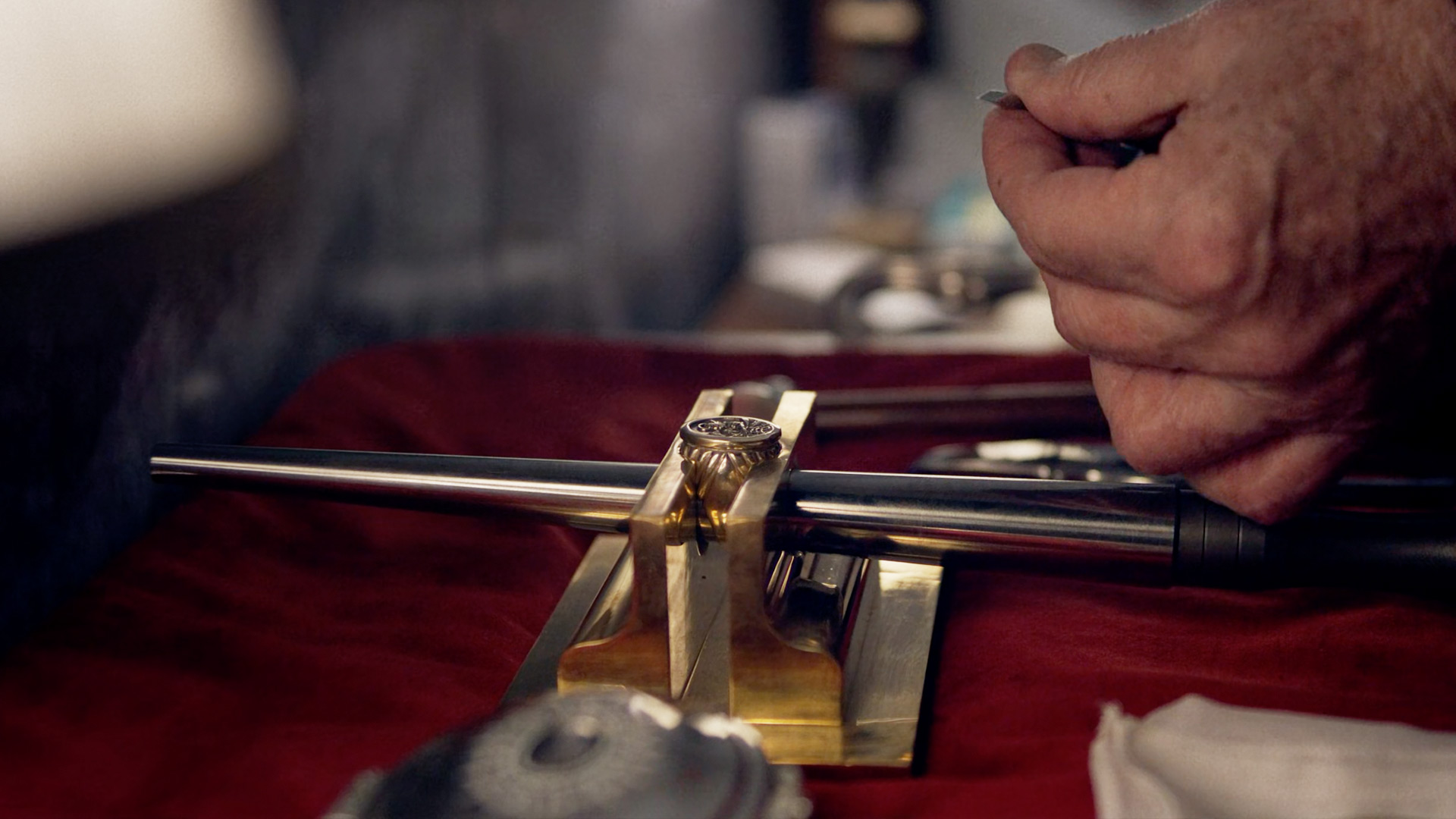
After the unexpected death of the Pope (Bruno Novelli), Thomas Cardinal Lawrence (Ralph Fiennes), the Dean of the College of Cardinals, is notified and arrives last at the Pope’s room in Domus Sanctae Marthae.
The Domus Sanctae Marthae, or Casa Santa Marta, is a building located adjacent to St. Peter’s Basilica in Vatican City. Completed in 1996 during the papacy of Pope John Paul II, it was designed to provide comfortable accommodations for clergy, particularly cardinals, who are in Vatican City for official business or during papal conclaves.
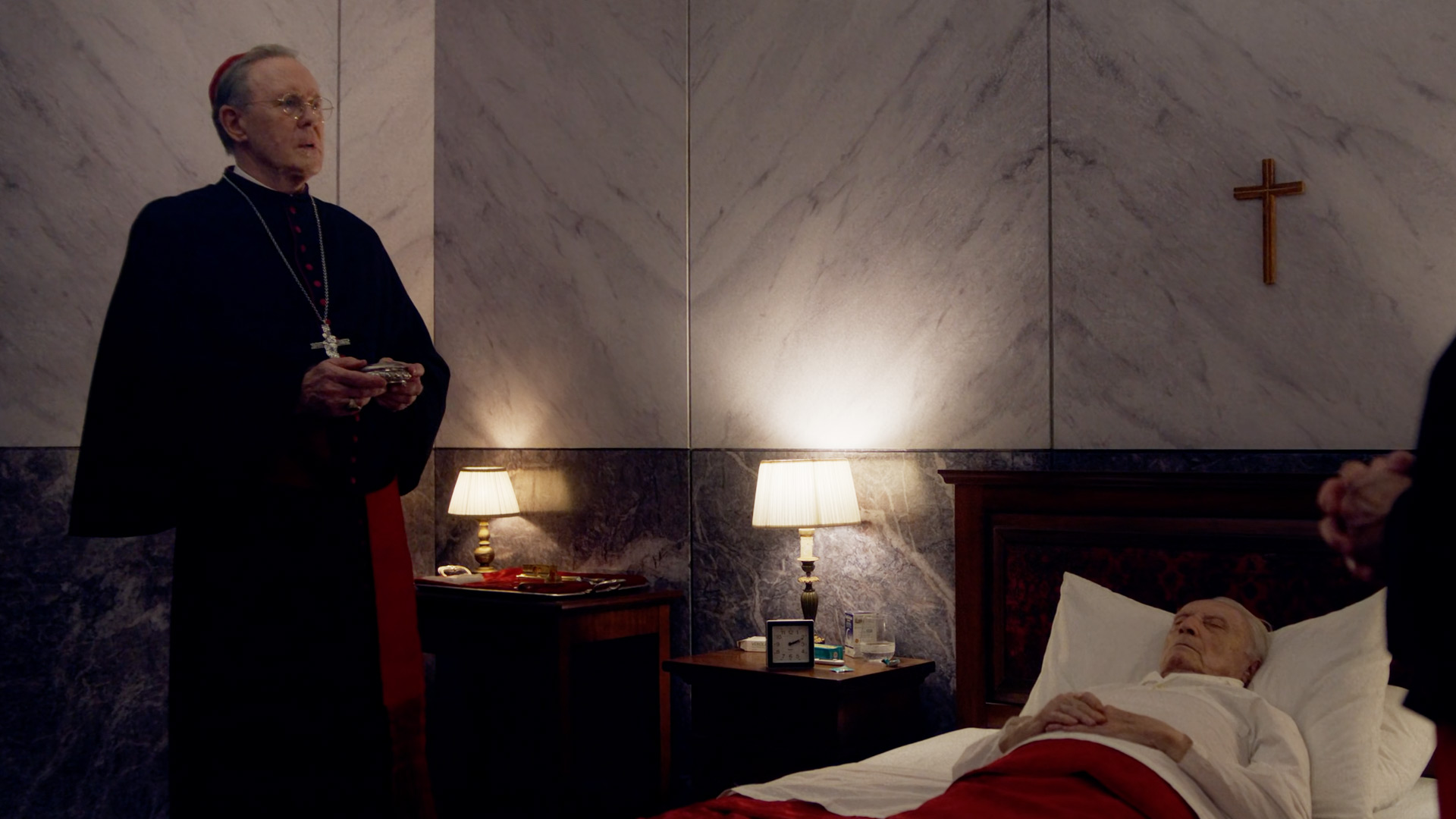
There, Joseph Cardinal Tremblay (John Lithgow), the Camerlengo of the Holy Roman Church, removes the Ring of the Fisherman from the Pope’s finger and disassembles it. He then announces that the throne of the Holy See is vacant.
The Ring of the Fisherman (Anulus piscatoris) is a significant symbol of the papacy, worn by the Pope as part of his official regalia. Upon the death or resignation of a pope, the Ring of the Fisherman is ceremonially destroyed by the camerlengo. This act prevents any potential forgery of documents that could occur if the ring were to fall into unauthorized hands. Traditionally, this destruction involved hammering the ring or making deep cuts into its surface. In recent times, rather than complete destruction, it may simply be defaced with cuts to signify the end of that pope’s authority.
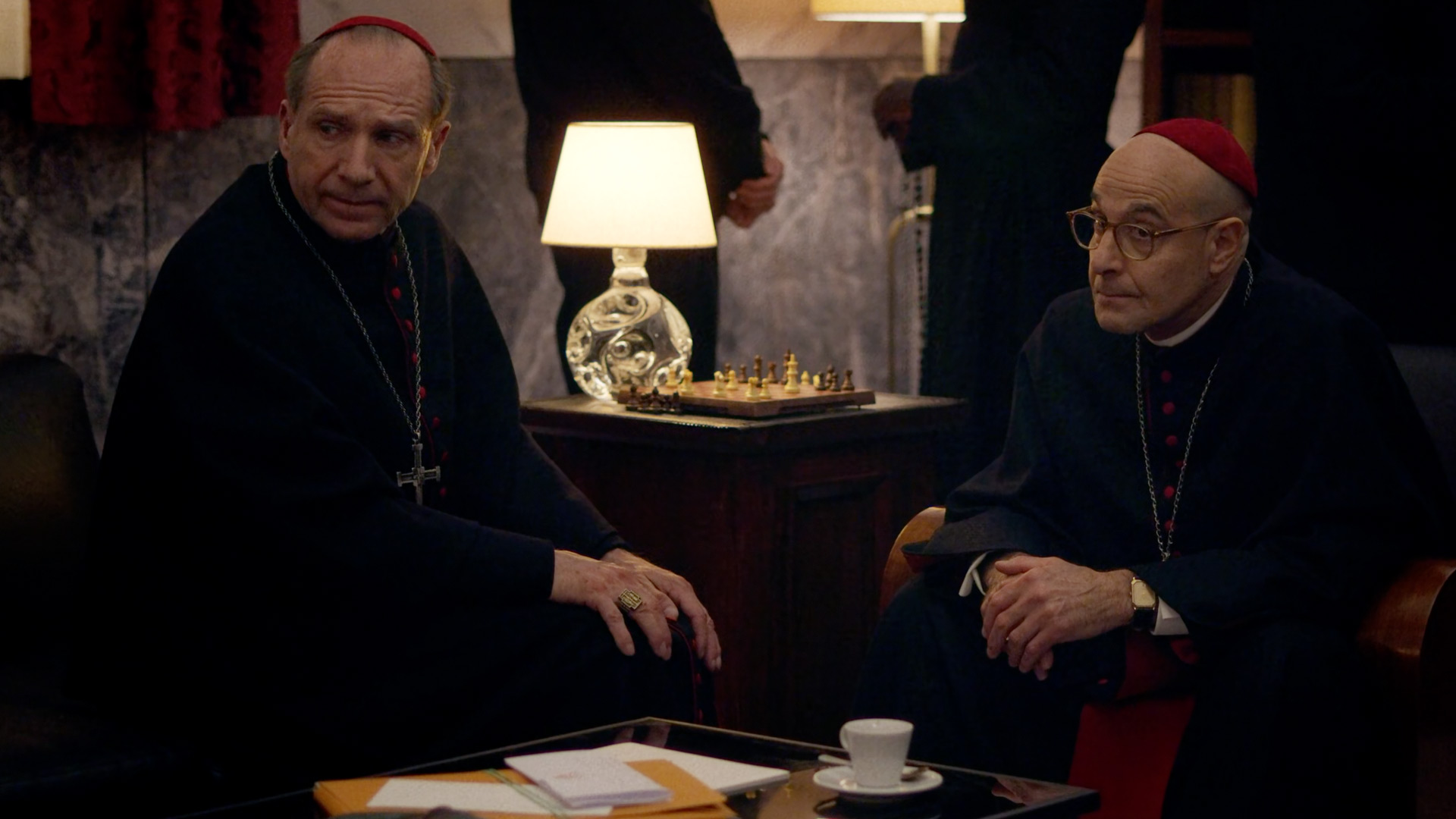
Lawrence learns from Aldo Cardinal Bellini (Stanley Tucci) that the Pope died of a heart attack. Bellini also reveals that there had been warnings about the Pope’s health, but he did not want anyone to know, fearing it would spark rumors of his resignation.
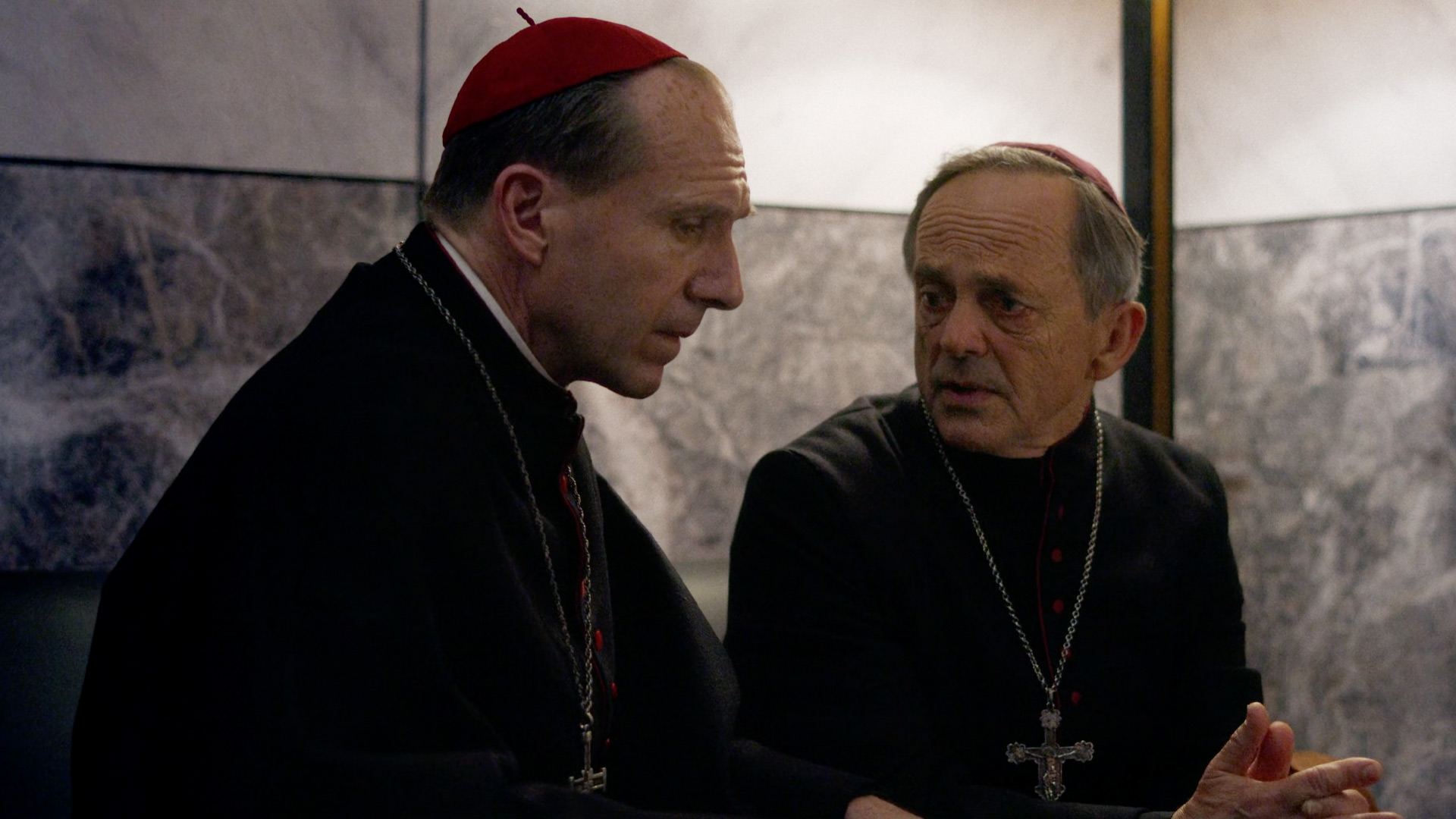
Lawrence asks Monsignor Raymond O’Malley (Brían F. O’Byrne), who discovered the Holy Father’s body, to explain what happened so he can prepare a detailed statement for the College of Cardinals and to heads of state. O’Malley explains that by the time he called the Holy Father’s doctor, it was already too late. He also mentions that he intended to call Lawrence, knowing that no one was closer to His Holiness than Lawrence and Bellini, but Tremblay asked him not to.
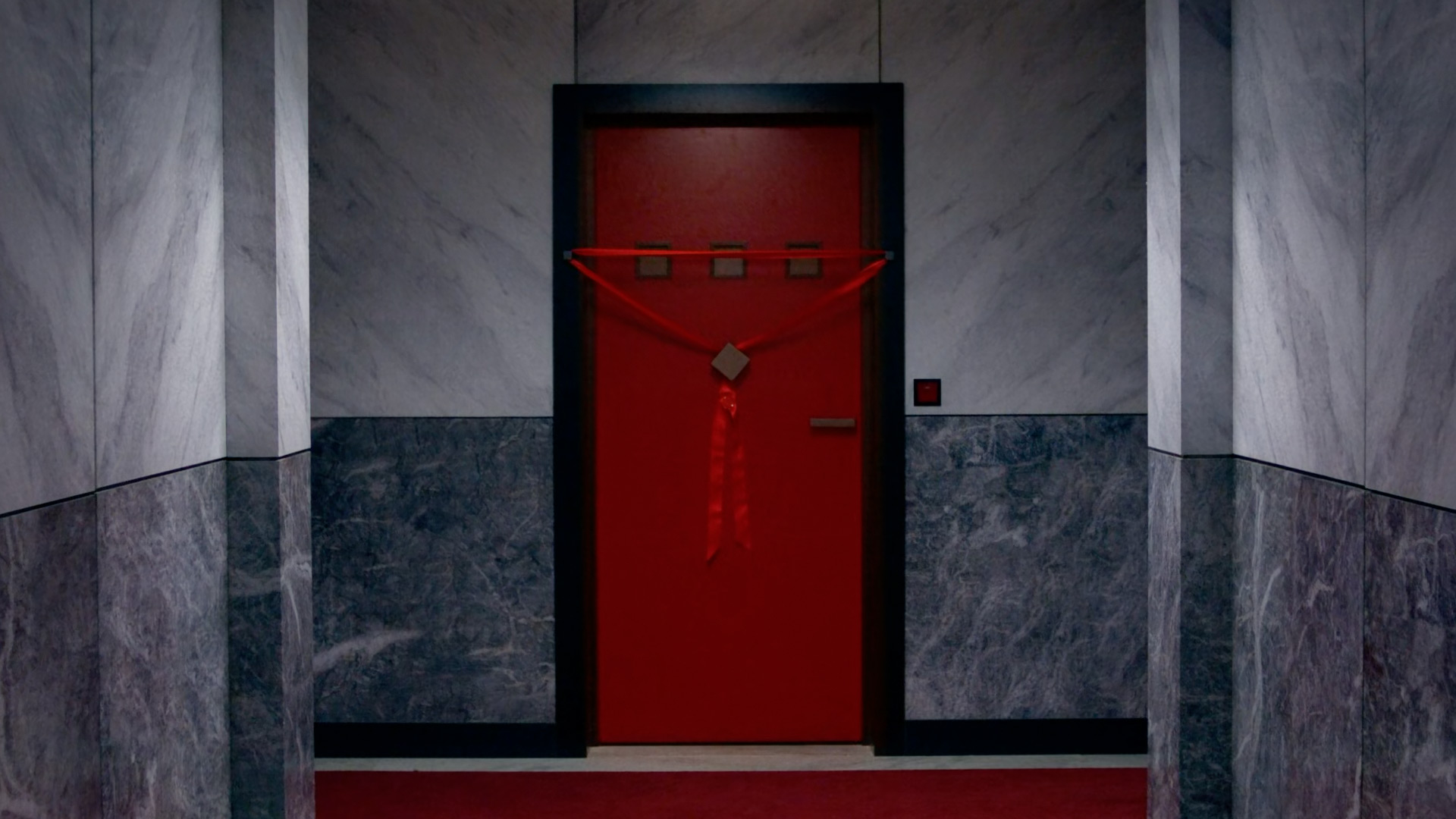
As the Pope’s body is taken away, his room is sealed with red sealing wax and a locking mechanism that holds the wax in place, ensuring that the room remains secure and undisturbed until the necessary procedures are completed. Meanwhile, Lawrence begins organizing the conclave by establishing the date and making all necessary preparations for the election process.
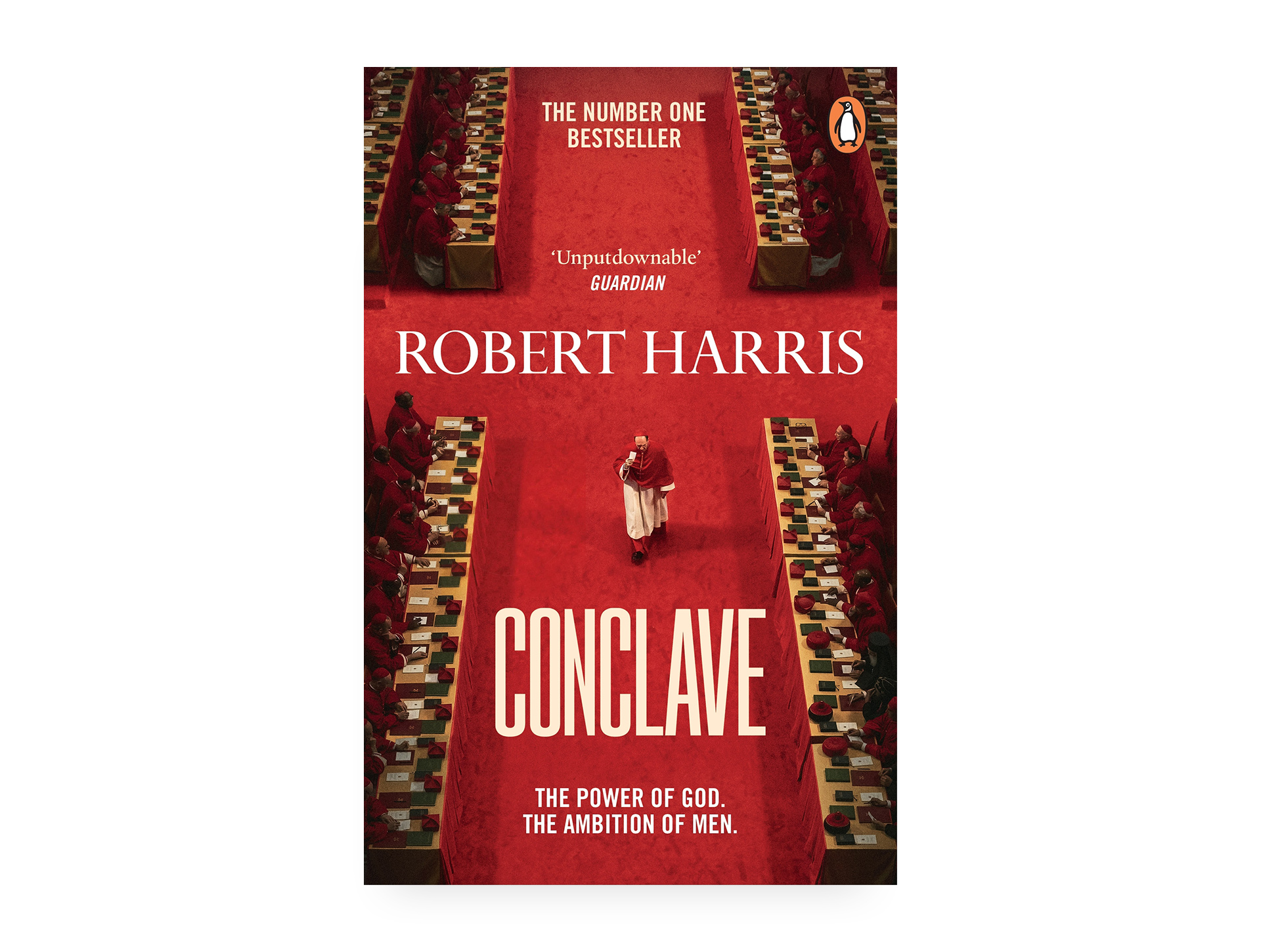
Directed by Edward Berger and adapted from Robert Harris’s 2016 novel by Peter Straughan, CONCLAVE is a mesmerizing thriller that captivates from the very first moment and maintains its grip throughout its 113-minute runtime.
Set in a papal conclave, a private meeting of the College of Cardinals convened to elect a new pope. The film offers an intimate glimpse into one of the world’s most secretive gatherings within the Roman Catholic Church.
The term originates from the Latin word conclāve, meaning “a locked room,” which reflects the secretive nature of these gatherings. During a conclave, cardinals are sequestered in the Vatican and are not allowed any contact with the outside world to ensure confidentiality in their discussions and voting process.
The narrative delves into the intricate design of the conclave, revealing conversations and conspiracies that, while their historical accuracy may be uncertain, feel remarkably authentic. Given the extreme secrecy surrounding these proceedings, where participants are bound by solemn oaths of confidentiality. The film crafts a narrative so compelling that it blurs the line between speculation and potential reality. Every detail feels so precisely rendered that I’m drawn into believing I am witnessing an actual papal election.
The first conclave, in the modern sense, occurred in 1271. It was convened to elect Pope Gregory X after a prolonged election process that lasted nearly three years. The cardinals were gathered in Viterbo, Italy, and due to the delays in reaching a decision, local authorities locked them in a room to expedite the election. This event marked the establishment of the conclave as a formalized process for electing popes, with Pope Gregory X later promulgating rules to govern future elections through the papal bull Ubi periculum in 1274.
The pope wields significant power within the Roman Catholic Church and beyond. As the Vicar of Christ, he holds supreme authority over the Church, guiding its doctrine and practices through the principle of papal supremacy, which asserts his jurisdiction over all bishops and faithful worldwide.
The average conclave since 1455 has lasted about 34.5 days, while the median duration is 13 days. However, recent conclaves have typically concluded within two to four days. The process begins approximately 15 to 20 days after a pope’s death or resignation, allowing time for all cardinals to gather.
This role grants him substantial influence in global affairs, as he leads a vast organization of over 1.3 billion Catholics and is often sought after by world leaders for his unique moral and ethical perspectives.
Historically, popes have exercised political power, including the authority to depose rulers, although this has diminished with the rise of nation-states.
French cinematographer Stéphane Fontaine meticulously captures every frame, while Volker Bertelmann’s haunting score perfectly elevates the film’s tension and atmospheric depth.
The cast delivers exemplary performances, bringing complex, multi-dimensional characters to life with a compelling blend of authenticity and intrigue.
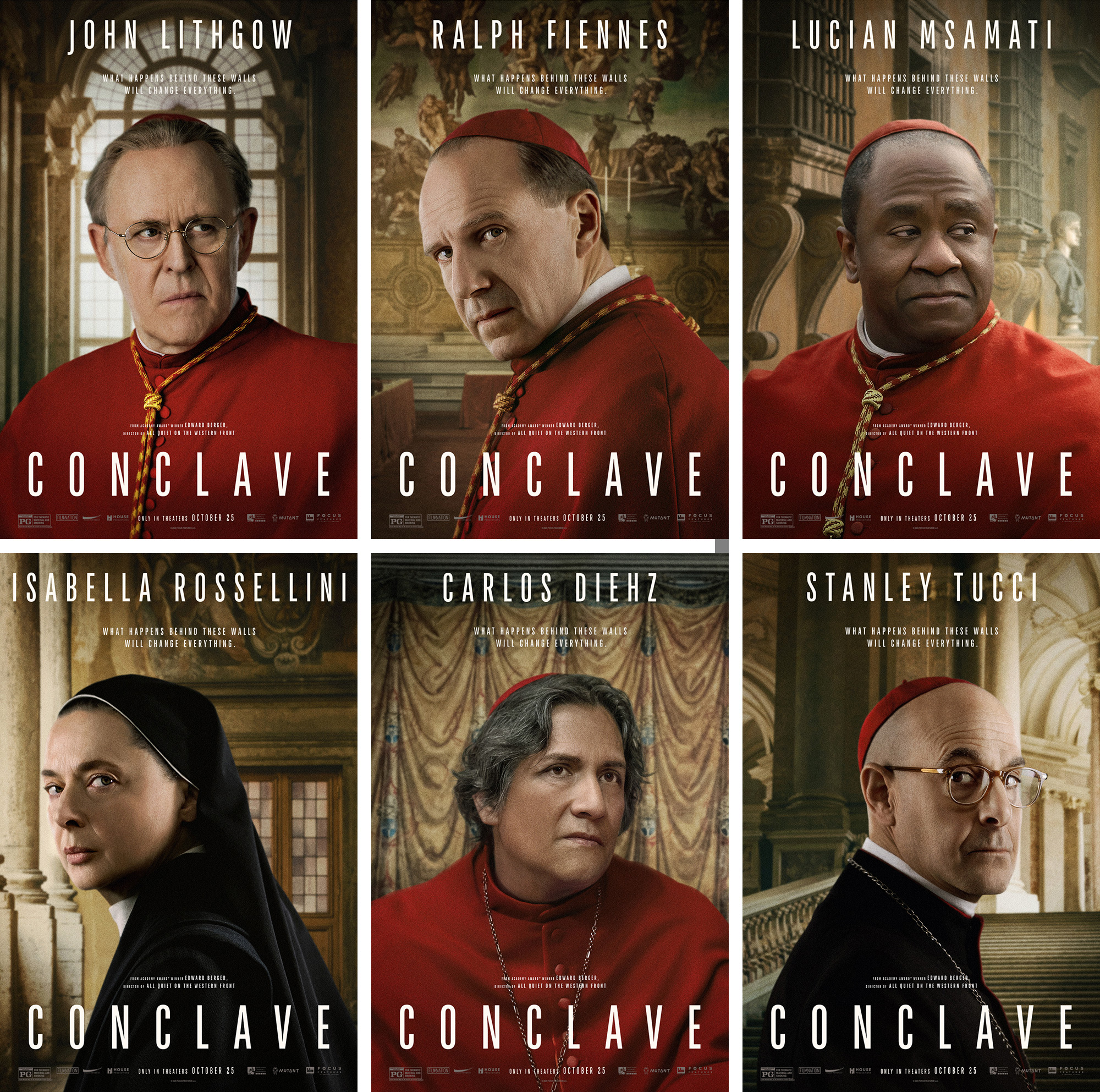
The stellar cast brings depth and nuance to the film. Ralph Fiennes portrays Thomas Cardinal Lawrence, the Dean of the College of Cardinals who had wished to resign but was prevented by the late Pope. The Pope secretly wanted Lawrence to oversee the conclave after his passing, believing Lawrence would guide the Cardinals in the right direction.
John Lithgow plays Joseph Cardinal Tremblay, an ambitious candidate for Pope who maintains a calm façade while carefully orchestrating his path to election. Lucian Msamati embodies Joshua Cardinal Adeyemi, another potential candidate burdened by past mistakes.
Sergio Castellitto delivers a powerful performance as Goffredo Cardinal Tedesco, an outspoken Italian candidate with traditional conservative views who seeks to restore the Church to its historical roots. Carlos Diehz portrays Vincent Cardinal Benitez, a mysterious Archbishop of Kabul whose existence is known only to the late Pope who appointed him and specifically requested that his elevation remain a secret.
Stanley Tucci rounds out the cast as Aldo Cardinal Bellini, Lawrence’s friend and a confidant of the late Pope. While Bellini insists he does not want to become Pope, he would nonetheless prefer to see himself elected rather than allow Cardinal Tedesco to destroy the late Pope’s legacy.
Even though Lawrence believes that certainty is a sin he fears above all, there is no doubt that CONCLAVE stands as one of the best films of the year.
Ralph Fiennes deserves an Oscar for his masterful performance, and the film should receive at least eight Academy Award nominations, including Best Actor, Best Supporting Actor, Best Adapted Screenplay, Best Cinematography, Best Original Score, Best Production Design, Best Film Editing, and Best Picture.
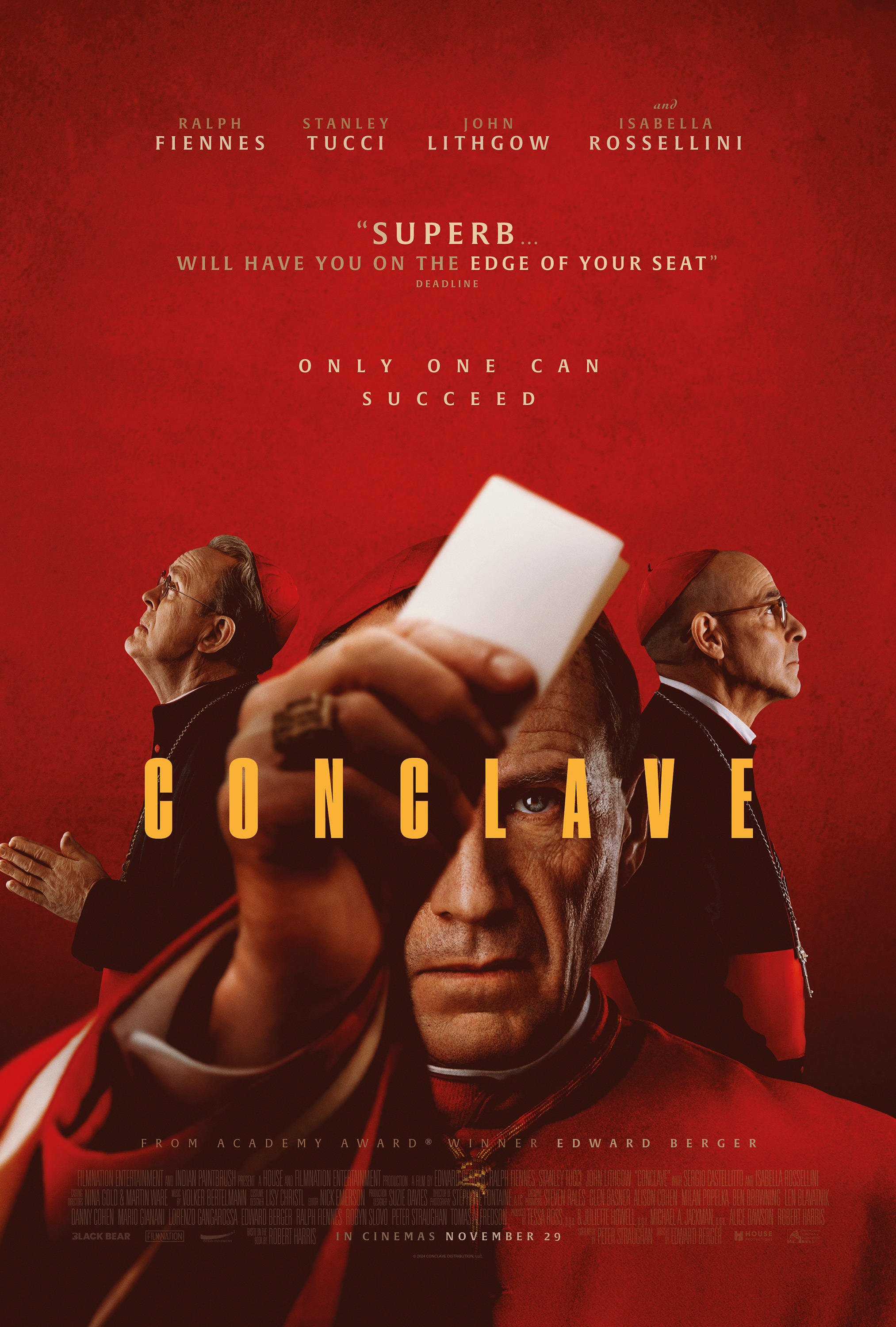
CONCLAVE premiered at Telluride Film Festival on 30 August 2024. The film was theatrically released in the United States on on 25 October 2024, by Focus Features. It is scheduled for the United Kingdom’s theatrical release on 29 November, by Black Bear UK.



